Power Players: A look at UVA alumni who are senators, reps and a governor

Thomas Jefferson and Woodrow Wilson (Law 1880) would be proud. So would law school grads Ted (Law ’59) and Robert Kennedy (Law ’51). Here’s a baker’s dozen of alums currently in the U.S. Senate and House and one governor’s mansion. For those who keep count, there are six Republicans, six Democrats and—to break the tie—one independent.
House of Representatives
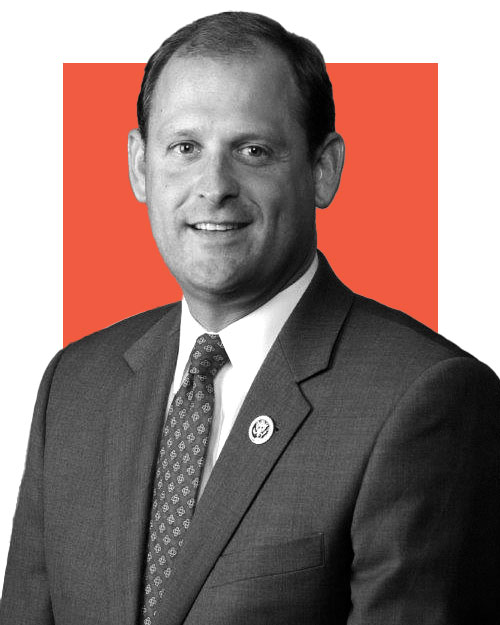
Garland H. “Andy” Barr IV (Col ’96)
R-Kentucky (6th District)
Barr presides over an area known for coal mining, car manufacturing, fine fillies and mint juleps. (He co-chairs the Congressional Horse Caucus and the Bourbon Caucus.) President Trump won his district with landslide numbers, but Barr can’t sit easy in the saddle; his constituents have historically seesawed between parties. Barr’s 2018 reelection was a photo finish, his support eroded by the administration’s liquor and steel tariffs. “If you do the job you are elected to do and are competent and accessible, the politics will take care of itself,” says Barr, who cut his conservative teeth writing for the Virginia Advocate.
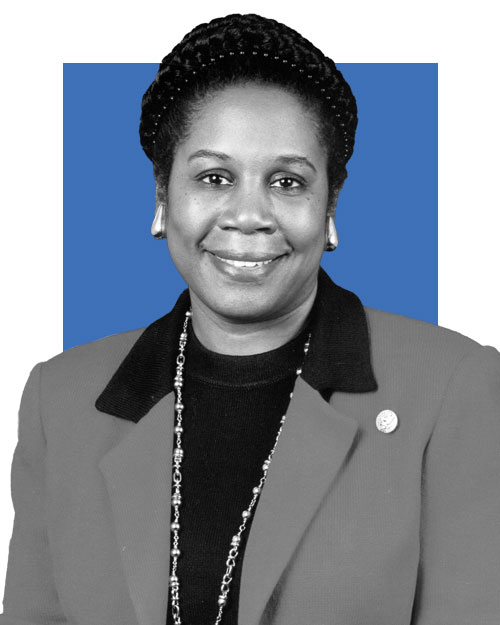
Sheila Jackson Lee (Law ’75)
D-Texas (18th District)
A product of Queens, New York (and Jamaican parents), Jackson Lee has served her Houston district for more than 25 years. This past Juneteenth (the day slavery was abolished in 1865), she called for the creation of a commission to study reparations for African Americans. “I’m a lightning rod,” she says. “I have a passion for the Constitution. I know when things are right or wrong.” A senior member of the Judiciary, Homeland Security and Budget Committees, she won praise in 2017 from UVA’s Center for Effective Lawmaking, which called her the second-most-effective Democrat in Congress.
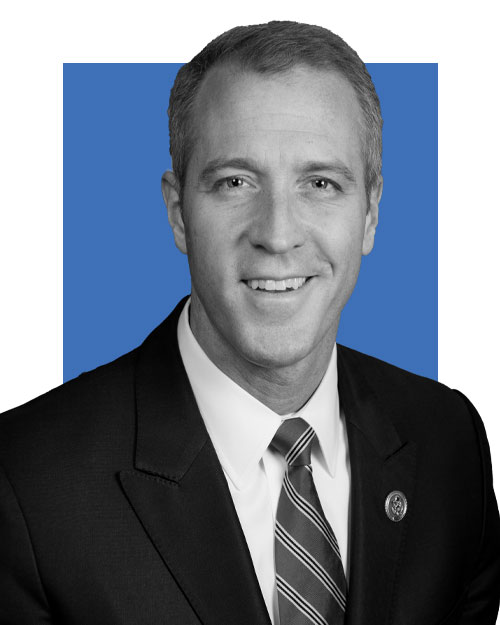
Sean Patrick Maloney (Col ’88, Law ’92)
D-New York (18th District)
Maloney knows about bare-knuckle fights. “I won in a Trump district as a gay guy with an interracial family,” the former Clinton White House staffer says. The Empire State’s first openly gay member of Congress, he married his longtime partner in 2014, and they have three children. Maloney disappointed locals in 2018 when he unsuccessfully ran for state attorney general, but his victories for veterans and commuter train safety kept him in good stead with voters.
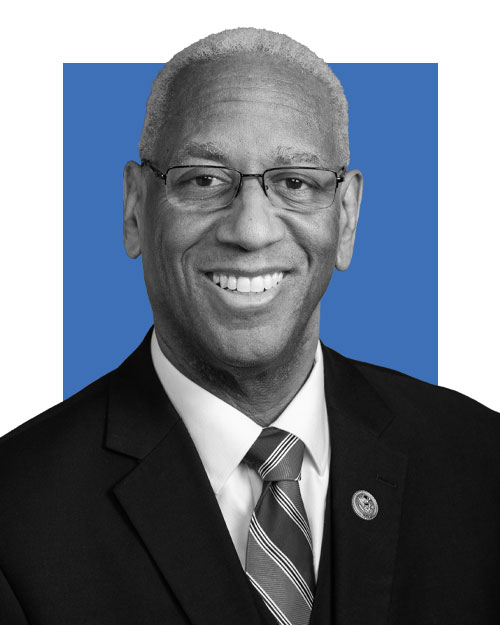
A. Donald McEachin (Law ’86)
D-Virginia (4th District)
Colleagues look up to McEachin. No wonder—he’s 6-foot-5. He’s fighting for environmental justice and passage of his 100% Clean Economy Act, which mandates a carbon-free America by 2050, a goal the former Virginia state senator calls “aspirational.” This first-termer and divinity school grad shepherds a district that runs from Richmond to Hampton Roads. His fondest law school memory? Meeting his wife, Colette Wallace-McEachin (Law ’85).
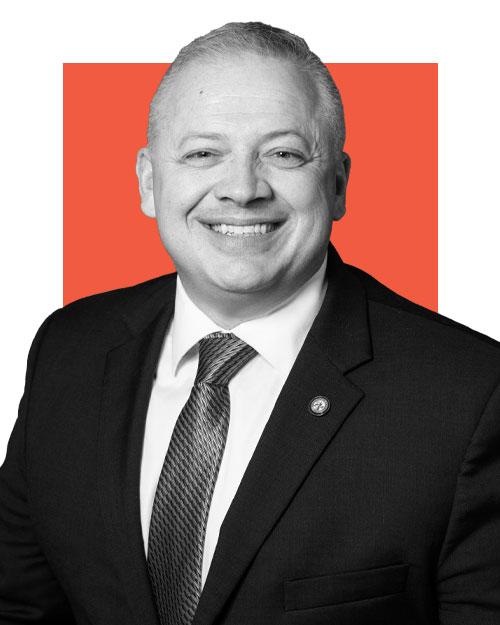
Denver Riggleman (Col ’98)
R-Virginia (5th District)
“I spent my life hunting terrorists and making whiskey,” says Riggleman, whose district encompasses Charlottesville. The former Air Force intelligence officer and distillery owner ran for office because he felt the government might “weaponize bad ideas against citizens.” He’s a rock-ribbed conservative, yet he angered some of his base by officiating at a same-sex wedding. Going to UVA, he says, was his life’s “defining experience.” The eldest of eight children, he was the first in his family to attend college.

Chip Roy (Com ’94, Grad ’95)
R-Texas (21st District)
A walk-on member of the UVA men’s golf team, Roy knows something about nailing clutch shots. This former prosecutor and investment-banking analyst bills himself as “a genuine conservative.” He serves the increasingly Democratic Austin and San Antonio areas and squeezed out a narrow first-time victory in 2018. “Life,” he says, “is a balance of intellect and life.” He supports the expanded border wall and humanitarian efforts for immigrants.

Abigail Davis Spanberger (Col ’01)
D-Virginia (7th District)
A former CIA undercover agent, Spanberger must love danger. Her high-risk mission? To win reelection as a centrist Democrat in a red rural Virginia district. The press calls her a “passionate pragmatist” and “boring and effective.” She opposed her party’s budget and got jeered for backing President Trump’s impeachment. “Frenetic” is how she terms U.S. trade policy with China, and she’s introduced a bill to harden the security of 5G networks, which many believe China seeks to infiltrate. Calling Iran an “adversary regime,” she says it’s “vitally important” for the U.S. to “affirm its people’s right to greater freedoms.”
Senate
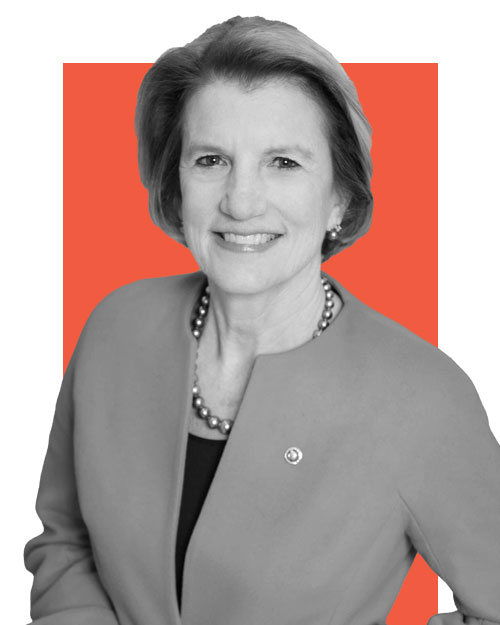
Shelley Moore Capito (Educ ’76)
R-West Virginia
Capito is in it for the long run. Literally. Her daily dawn jog takes her up the Lincoln Memorial’s steps. A moderate Republican, she champions her state’s coal mining interests and has fought for better broadband access in her mountainous state. As chairwoman of a transportation subcommittee, she played a key role shaping a recent infrastructure funding bill. Health issues also dominate her agenda. She’s secured more funding to fight the state’s opioid crisis and for research into a cure for Alzheimer’s disease, which both of her parents had.
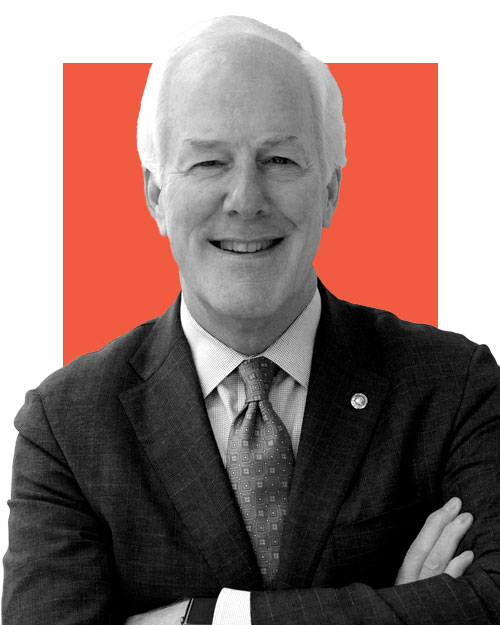
John Cornyn III (Law ’95)
R-Texas
Heading into his 2020 reelection campaign, Cornyn “looks formidable,” says one Texas newspaper editorial, which adds that this former Senate majority whip, Texas attorney general and Texas Supreme Court justice is “eager for bipartisanship where it’s possible and ready for battle when it’s not.” During his first Senate run, he cultivated a reputation for being tough. The lyrics of his viral music video “Big John” vowed he would “shoot straight, talk straight and enjoy a good brew.”

John Kennedy (Law ’77)
R-Louisiana
A former trial attorney and longtime state treasurer, Kennedy (no relation to that other political family) hides a razor-sharp mind behind his laconic Southern wit. Supreme Court justices? They should be “a cross between Socrates and Dirty Harry.” Today’s Congress? “A circus without a tent.” He served as executive editor of the Virginia Law Review, and former classmate Paul Stephan (Law ’77) says Kennedy was “unambiguously one of the top students in our class.”

Angus King (Law ’69)
I-Maine
One of two independents in the Senate, King is known as a “radical centrist,” though his voting record tilts to the left. He was a Democrat until 1993, when he ran for governor. After two terms, he and his family spent six months in a motor home visiting 33 states. “I don’t drink wine. I don’t know what brie is. I bowl every Thursday night. My idea of fun is to go RVing,” says King, who rides a Harley. Despite his blue-collar image, this former energy executive’s net worth is more than $10 million.
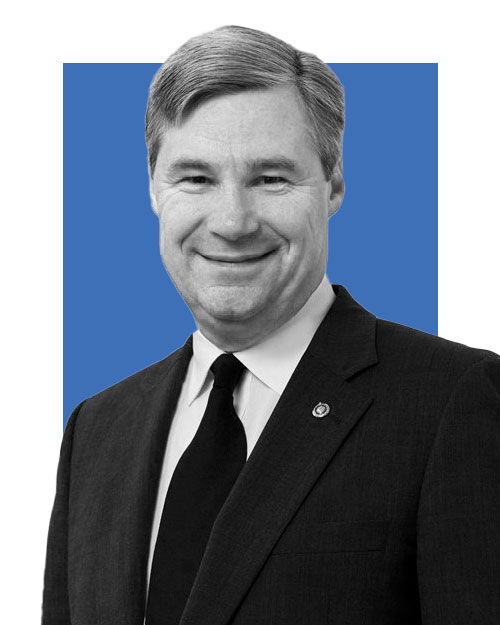
Sheldon Whitehouse (Law ’82)
D-Rhode Island
Whitehouse comes from people. His Puritan ancestor William Bradford governed Colonial Massachusetts. His great-great-grandfather co-founded the Central Pacific Railroad. As befits an Ocean State lawmaker, he’s a climate hawk, especially regarding the seas. For the past seven years, this former U.S. attorney and Rhode Island attorney general has given more than 200 weekly speeches to implore the Senate to take stronger environmental action. He credits law school with honing his moral compass. Says Whitehouse: “A seemingly tedious civil procedure class brought to vibrant life the conflicts and consequences of ‘getting the rules right.’”
Statehouse

Andy Beshear (Law ’03)
Governor of Kentucky (D)
Beshear, the state’s attorney general and son of a former two-term governor, unseated the Bluegrass State’s Republican governor by 5,136 votes this past December. Some pundits predict that his win, following a bitter campaign, presages a narrow reelection defeat for Trump. Others say it was a fluke in a red state the president won easily in 2016. Local issues, such as health care, education and the sustainability of teachers’ pensions (plus a well-run campaign) may have been what tipped the balance.